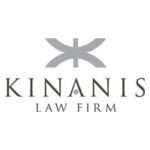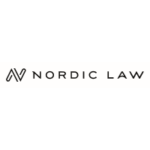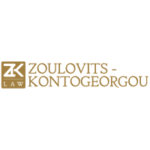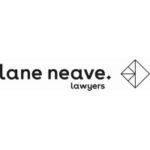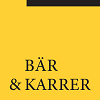-
Please provide a high-level overview of the blockchain market in your jurisdiction. In what business or public sectors are you seeing blockchain or other distributed ledger technologies being adopted?
Although an increasing number of prototypes have been developed and tested by Swedish companies in recent years, the adoption of blockchain and other distributed ledger technologies in Sweden has not yet fully taken off. However, a number of initiatives and collaborations have been launched to exploit and commercialise the technology, and this is developing rapidly. For example, Centiglobe AB, has created a blockchain solution focusing on DLT cross-border payment solutions, designed to expediate payments cross border. There are also bank-owned initiatives relating to digital bonds. Our view is that, to date, the technology is most often seen in the financial sector, with increasing interest from other industries (particularly those with a particular interest in ensuring the authenticity of documents and the integrity of archives over time).
One of the most notable applications of blockchain technology in the public sector is the collaboration between the Swedish Mapping, Cadastral and Land Registration Authority (Sw. Lantmäteriet) and a number of companies in the private sector, which used blockchain technology to successfully carry out a real estate transaction in 2018. In addition, in September 2021, the Swedish Companies Registration Office (Sw. Bolagsverket) was commissioned by the Swedish government to build a verification service for company information based on blockchain technology. The stated purpose is to enable companies to collect and share verified and up-to-date information about their company. The Swedish Companies Registration Office presented the results in March 2023 and concluded that it is technically possible to upload information to digital wallets and to exchange verifiable evidence between the two digital wallets for example to prove that the companies holding the digital wallets are correctly registered, thus facilitating cross-border trade and business relationships. We are also aware of attempts to create electronic negotiable promissory notes using blockchain solutions (which raises specific legal issues under Swedish law, which the technology could potentially resolve). There are also established businesses in Sweden dealing with virtual currencies mining and businesses that provide trading venues for virtual currencies and tokens.
With the entry into force of the regulatory framework for cryptoassets (Regulation 2023/1114 on Markets in Crypto-Assets (“MiCA”)) and the regulation on a pilot regime for market infrastructures based on distributed ledger technology (DLT) (Regulation (EU) 2022/858, the “DLT Regulation”), we expect the adoption of blockchain and other distributed ledger technologies to take off in the coming years.
-
Please outline the principal legislation and the regulators most relevant to the use of blockchain technologies in your jurisdiction. In particular, is there any blockchain-specific legislation or are there any blockchain-specific regulatory frameworks in your jurisdiction, either now or envisaged in the short or mid-term?
Until recently, one of the main challenges of blockchain technology was the lack of specific regulation – blockchain technology was a novel technology that in many ways did not fit into the legal framework, creating a legal vacuum. However, this has changed and will change with the DLT Regulation and MiCA.
Following the proposal of the DLT Regulation, the Swedish government appointed an inquiry to propose legislative changes deemed necessary to adapt Swedish law to the new technology, in particular DLT. In January 2024, the inquiry published report with a number of legislative proposals, including, among other things, a proposal on a Swedish law to supplement the DLT Regulation. It is proposed that the new law should contain provisions that are essentially the same as those applicable to book-entry financial instruments under the Swedish Central Securities Depositories and Financial Instruments Accounts Act. However, the provisions are adapted to the new technologies covered by the DLT Regulation, including the fact that the financial instruments do not necessarily have to be held in an account and that the information may be stored in a distributed (decentralised) manner in different nodes rather than in a single central register.
In February 2024, the Ministry of Finance submitted a report proposing legislative amendments deemed necessary as a result of the entry into force of MiCA, including a new law to supplement MiCA. The proposed new law includes, among other things, provisions on the supervisory powers of the Swedish Financial Supervisory Authority (the “SFSA”) and on interventions and sanctions against persons carrying out activities covered by MiCA.
In addition, since 1 January 2020, a legal or natural person who professionally manages or trades virtual currency in Sweden must be registered under the Swedish Act on Certain Financial Operations. After the introduction of MiCA and the new law supplementing MiCA, such activities will be regulated under MiCA instead.
-
What is the current attitude of the government and of regulators to the use of blockchain technology in your jurisdiction?
The Minister of Finance has declared in a public answer to the Swedish parliament that the Swedish government is positive towards technical innovations and that blockchain technology creates opportunities in a variety of sectors where the technology could be used to improve the keeping of records. In relation to MiCA, the Swedish government has stated that it welcomes a regulation that promotes responsible innovation, development and competition in the present field. Hence, the attitude towards the use of blockchain technology should be regarded as positive.
-
Is there a central bank digital currency (‘CBDC’) project in your jurisdiction? If so, what is the status of the project?
Starting in 2017, the Swedish Central Bank (Sw. Riksbanken) has evaluated the possibility of issuing a central bank digital currency to the general public, what would be known as the e-krona. The work of the e-krona pilot was launched in 2020 and has been aimed at testing different technical solutions and examining different legal aspects in parallel. The technical solution of the test environment was based on blockchain technology. The Swedish Central Bank has issued several reports on the project, investigating e.g. how the Swedish Central Bank could cooperate with other players in the payment market to give the public access to and the possibility to pay with e-krona, how conditional payments can be designed and whether digital central bank money can simplify cross-border payments. In 2024, the Swedish Central Bank issued its fourth and final report, covering how an e-krona could work in practice, concluding that with the right boundaries and regulatory framework, it should be possible to develop a secure and usable solution.
However, whether or not an e-krona is introduced in Sweden is ultimately a political decision. An inquiry into the Swedish state’s role in the payments market, presented in March 2023, assesses that there is currently insufficient social need for the Swedish Central Bank to issue an e-krona. However, the inquiry acknowledges that the development is rapid and therefore economic, political and technological changes may prompt a new assessment. The Swedish Central Bank’s work on the e-krona will continue and will focus on designing and preparing the legislation that may be required if an e-krona is introduced.
-
What is the current approach in your jurisdiction to the treatment of cryptoassets and decentralised finance (‘DeFi’) for the purposes of financial regulation?
From a financial regulatory perspective, please see above regarding MiCA and the DLT Regulation. Other than that, the SFSA has not provided any conclusive guidance on the treatment of cryptoassets for the purposes of financial regulation.
As for blockchain technology in general, Sweden has not adopted any specific local laws to regulate the use of cryptoassets, other than the supplementary acts and certain other amendments related to the DLT Regulation and MICA as described in Section 2 above. Depending on the use and character of the cryptoasset at hand, laws of a more general nature may also apply.
Furthermore, the SFSA as well as certain EU regulators have issued public reports on consumers’ investments in cryptocurrencies, cryptoassets and financial instruments related thereto, highlighting, among other things, difficulties relating to valuing the crypto assets and the lack of adequate consumer protection regulation. In this context, even with the entry into force of MiCA, the SFSA continues to consider investments relating to cryptocurrencies as highly risky and unsuitable for most consumers.
-
What is the current approach in your jurisdiction to the treatment of cryptoassets and DeFi for the purposes of anti-money laundering and sanctions?
Following the entry into force of MiCA, cryptoasset service providers will be subject to the Swedish Anti-Money Laundering and Financing of Terrorism Act (the “AML Act”). Moreover, in its supervisory priorities for 2024, the SFSA stresses that the financial system continues to be at risk of being used by criminals to launder money, especially when it comes to smaller and mid-size firm or organisations that handle cryptoassets.
-
What is the current approach in your jurisdiction to the treatment of cryptoassets and DeFi for the purposes of taxation?
In terms of taxation, cryptocurrency is taxed under Swedish legislation upon disposal or in connection with so-called “mining”. However, for income tax purposes, cryptocurrencies are generally not characterised as a currency. In a ruling regarding the classification of bitcoins (HFD 2018 ref. 72), the Swedish Supreme Administrative Court held that currency generally refers to a payment instrument issued and guaranteed by a central bank or similar institution of a state. Bitcoin lacks a formal publisher. Its value is not based on any claim on the issuer but is determined based on market availability and demand. A bitcoin is also not generally accepted as a means of payment. Against this background, the court concluded that a bitcoin cannot be regarded as a foreign currency within the meaning of the Swedish Income Tax Act (the “ITA”). Furthermore, a bitcoin cannot be regarded as an equity-related instrument. A sale or other disposal of a bitcoin (e.g. if bitcoin is used as payment for goods and services) should therefore be taxed in accordance with the provisions for capital gains and losses on the disposal of “other assets” under the ITA. The Swedish Tax Agency has in a statement held that the same should apply for other equivalent cryptocurrencies.
The capital gain on the disposal of a cryptocurrency is generally taxed as capital income at a rate of 30 per cent for individuals who are tax resident in Sweden. Whereas capital losses can only be deducted with up to 70 per cent against other capital income. For Swedish limited liability companies, all income, including taxable capital gains on the disposal of cryptocurrency, is taxed as business income at a rate of 20.6 per cent and any capital losses related to the disposal of cryptocurrency are generally fully deductible. However, if cryptocurrency is held as an asset within a trade of business, for example as stock in trade, specific tax rules may apply.
Bitcoins and other cryptocurrencies that are received when carrying out so-called “mining” of cryptocurrencies shall normally be taxed as employment income (hobby) for an individual, but could under certain circumstances be taxed as business income.
In respect of decentralized finance (DeFi), the tax treatment in a specific situation may be complicated and must always be reviewed on a case-by-case basis. The Swedish Tax Agency has issued guidelines that may be considered when considering a specific situation and normally the core issue is if the crypto assets are considered to have been disposed of or not. As an example, the Swedish Tax Agency’s view is that where crypto assets are being transferred to a cash pool in a decentralized platform (to be sold or borrowed) in exchange for a claim (token) to recover the investor’s part of the assets, it should be treated as a taxable disposal of the crypto assets. The same applies to an exchange of the claim (token) to assets in the cash pool. On the other hand, a transfer of a crypto asset as a pledge for an obligation should according to the Swedish Tax Agency not be considered as a taxable disposal provided that the ownership has not been transferred (i.e. the asset may not be sold, exchanged, lent out, etc.).
For VAT purposes, the provision of exchange services relating to bitcoins has, however, been considered to fall within the scope of the VAT exemption for currency transactions based on the ECJ ruling C-264/14, Hedqvist (HFD 2016 ref. 6). The same treatment should reasonably apply also for exchange services related to other equivalent cryptocurrencies provided that they can be considered equivalent to legal tender within the meaning of the Swedish VAT Act. In general, to be deemed an equivalent to legal tender, the cryptocurrencies should according to the Swedish Tax Agency’s view not have any other purpose than to serve as a currency and they must be accepted as such by several unrelated parties. Moreover, in all situations involving cryptocurrencies an assessment must be made on a case-by-case basis to determine if the transaction fall within the scope of VAT, i.e. constitutes a supply of goods or services for consideration, and if so if the supply is subject to VAT.
-
Are there any prohibitions on the use or trading of cryptoassets in your jurisdiction? If permitted, is cryptoasset trading common?
There are currently no specific prohibitions on the use or trading of cryptoassets in Sweden. However, several restrictions may apply depending on the business and services provided and, as such, the business and services must always be reviewed in light of, primarily, the general regulatory framework on financial services and consumer protection and MiCA.
There is limited information on cryptoasset trading in Sweden. Ownership of most cryptoassets, such as Bitcoin, is fundamentally anonymous and data availability is low. However, in a report published by the Swedish Tax Agency in June 2024, approximately 8,000 persons reported capital loss or capital gain in their tax filings for the 2021 taxation year. Also, there are a number of Swedish firms that provide platforms for buying and selling cryptoassets, such as Goobit. As of April 2024, Goobit had 243,000 customers, of which a large portion probably being customers based in Sweden.
-
To what extent have initial coin offerings (‘ICOs’) taken place in your jurisdiction and what has been the attitude of relevant authorities to ICOs? If permissible, what are the key requirements that an entity would need to comply with when launching an ICO?
As far as we are aware, only a few ICOs have taken place in Sweden (for example by Starflow AB and Chromaway AB).
As regards the attitude of relevant authorities, the SFSA and the European Securities and Markets Authority (ESMA) have issued warnings for investing in ICOs and crypto assets in general, highlighting that the purchase of a token in ICOs does not necessarily entail any rights for the consumer, that the price of tokens issued does not have to be set by an independent party and that there is no guaranteed access to secondary markets.
The requirements when launching an ICO depend on whether the actual cryptoasset is considered a financial instrument or a cryptoasset under MiCA. If the cryptoasset is considered a financial instrument, it will be governed by the Swedish securities regulations (e.g. the Prospectus Regulation, the Swedish Financial Instruments Trading Act and the Swedish Securities Markets Act). If the ICO involves cryptoassets, it will be subject to e.g. the transparency and disclosure requirements for the issuance, offer to the public and admission of crypto-assets to trading on a trading platform for crypto-assets set forth by MiCA.
-
Are there any legal or regulatory issues concerning the transfer of title to or the granting of security over cryptoassets?
Under Swedish law, the pledgor must not have the right to dispose of the secured asset for a security interest or a transfer of title to be valid in relation to third parties. Pursuant to the proposed Swedish act with provisions supplementing the DLT Regulation (see Section 2 above), a distributed ledger shall be constructed in such a manner that e.g. ownership, security interest and any other rights over financial instruments on the distributed ledger can be registered on and evidenced by the ledger. The ownership and perfection of the security interest will, if the proposal enters into force, be evidenced by registration on the relevant distributed ledger (i.e. similar to the regime for dematerialised shares). To the extent the cryptoassets kept on the distributed ledger would qualify as financial instruments under the Swedish Securities Markets Act, the transfer of title and granting of security would be evidenced by the registration in accordance with the proposed act supplementing the DLT Regulation. Under the proposed legislation, if financial instruments on a distributed ledger are held by a third party or a nominee (Sw. förvaltare), a notification of the security to that party shall have the same effect as a transfer of title or granting of pledge through a consensus mechanism.
As the typical cryptoassets (i.e. tokens or virtual assets) usually do not qualify as a financial instrument, the transfer of title or granting of security over such cryptoasset is still not clear. However, if the such tokens or virtual assets are held by a third party, a notification to that party should be sufficient to perfect the security, similar to the granting of security over dematerialised shares and the proposal for financial instruments on a distributed ledger. If the tokens or virtual assets are not held by a third party, and provided that it is technologically possible, the security may be perfected by letting the DLT network know that the assets are pledged and that the secured assets may not be transferred without the consent of the pledgee. If such notification is not possible, there could be an issue with the perfection of the security. As regards transfers of title, the DLT would typically automatically meet the customary requirements for a valid transfer of title without the need of further actions by either party.
-
How are smart contracts characterised within your legal framework? Are there any enforceability issues specific to the operation of smart contracts which do not arise in the case of traditional legal contracts?
Swedish law concerning formation of contracts is generally technology neutral, meaning that entering into agreements electronically does not pose a problem per se. However, under Swedish law the formation of a contract in principle requires that the parties exchange declarations in some form. This requirement may cause problems where the agreement is concluded electronically automatically without or with very limited human influence, meaning that certain types of smart contracts may not meet the definition of a binding agreement.
Moreover, all electronically concluded contracts are seen as distance contracts since the parties do not meet when the agreement is concluded. This is in turn entails that the distance contract consumer protection legislation may be applicable where one of the parties is a consumer. Similarly, given that smart contracts are not specifically regulated, general principles regarding, for instance, consumer protection will apply.
-
How are Decentralised Autonomous Organisations (‘DAOs’) treated in your jurisdiction?
To the best of our knowledge, DAOs are not common in Sweden.
-
Have there been any governmental or regulatory enforcement actions concerning blockchain in your jurisdiction?
In 2015, the Supreme Administrative Court of Sweden requested a preliminary ruling from the ECJ (C-264/14) concerning the interpretation of Articles 2(1)(c) and 135(1)(e) of directive 2006/112/EC on the common system of value added tax (the “VAT Directive”). The request had been made in proceedings between the Swedish Tax Agency and an individual concerning a preliminary decision given by the Swedish Revenue Law Commission (Sw. Skatterättsnämnden) on whether transactions to exchange traditional currency for bitcoin or vice versa, which the individual wished to perform through a company, were subject to VAT. The ECJ ultimately found that the exchange of traditional currencies for units of bitcoin and vice versa, at least under the specific circumstances at hand, should be exempt from VAT within the meaning of Article 135(1)(e) under the VAT Directive.
In June 2024, the Swedish Tax Agency has submitted a request to the government that it should be reviewed if simplified rules for taxation of crypto assets should be introduced (and if so, that new legislation should be proposed). It is proposed that any new rules should be less complicated in order to reduce the administrative burden for the tax payers and the Swedish Tax Agency. It is currently uncertain if a review will be initiated and what form any proposals for new legislation may have.
-
Are there any other generally-applicable laws, case law or regulations that may present issues for the use of blockchain technology (such as privacy and data protection law or insolvency law)?
Forms of contract prescribed by law may limit the use of smart contracts and blockchain technology for certain types of contracts, such as purchase agreements relating to real estate.
As for privacy laws, the transparency and immutability traits that accompanies blockchain solutions, makes it very hard to develop a blockchain that complies with all requirements of the GDPR. Data subjects right to rectification and the right to be forgotten may be especially hard to comply with when personal data is published on the blockchain. Also, in relation to the potential launch of an e-krona, the Swedish central bank has expressed concern that the tested technical solution, based on blockchain technology, would not comply with applicable bank secrecy regulations.
Furthermore, the Swedish Enforcement Code requires an original negotiable promissory note to be handed in to the Enforcement Authority, as proof of the claimant being the rightful beneficiary, in order for the authority to collect the debt represented by the promissory note in question. There is currently no established practice in place which allows for this to be done with electronic documents, and the Enforcement Authority has previously stated that it will not accept or collect debts on electronic negotiable promissory notes (as identifying which electronic file is the original would not be possible, in the authority’s view). Thus, the Enforcement Code does present issues in this regard. However, a Swedish Supreme Court ruling from 2017 has, obiter dicta, stated that this may be resolved through new technological means. It may therefore be that a robust blockchain solution (which demonstrates the ownership chain of the promissory note) could prove to be acceptable to the Enforcement Authority. However, this is yet to be seen.
-
Are there any other key issues concerning blockchain technology in your jurisdiction that legal practitioners should be aware of?
Legal practitioners should be aware of the fact that Swedish law has previously not been adapted for blockchain technology. As highlighted above, this means that the use of blockchain technology has been forced into existing laws, making the framework fragmented and complex.
Sweden: Blockchain
This country-specific Q&A provides an overview of Blockchain laws and regulations applicable in Sweden.
-
Please provide a high-level overview of the blockchain market in your jurisdiction. In what business or public sectors are you seeing blockchain or other distributed ledger technologies being adopted?
-
Please outline the principal legislation and the regulators most relevant to the use of blockchain technologies in your jurisdiction. In particular, is there any blockchain-specific legislation or are there any blockchain-specific regulatory frameworks in your jurisdiction, either now or envisaged in the short or mid-term?
-
What is the current attitude of the government and of regulators to the use of blockchain technology in your jurisdiction?
-
Is there a central bank digital currency (‘CBDC’) project in your jurisdiction? If so, what is the status of the project?
-
What is the current approach in your jurisdiction to the treatment of cryptoassets and decentralised finance (‘DeFi’) for the purposes of financial regulation?
-
What is the current approach in your jurisdiction to the treatment of cryptoassets and DeFi for the purposes of anti-money laundering and sanctions?
-
What is the current approach in your jurisdiction to the treatment of cryptoassets and DeFi for the purposes of taxation?
-
Are there any prohibitions on the use or trading of cryptoassets in your jurisdiction? If permitted, is cryptoasset trading common?
-
To what extent have initial coin offerings (‘ICOs’) taken place in your jurisdiction and what has been the attitude of relevant authorities to ICOs? If permissible, what are the key requirements that an entity would need to comply with when launching an ICO?
-
Are there any legal or regulatory issues concerning the transfer of title to or the granting of security over cryptoassets?
-
How are smart contracts characterised within your legal framework? Are there any enforceability issues specific to the operation of smart contracts which do not arise in the case of traditional legal contracts?
-
How are Decentralised Autonomous Organisations (‘DAOs’) treated in your jurisdiction?
-
Have there been any governmental or regulatory enforcement actions concerning blockchain in your jurisdiction?
-
Are there any other generally-applicable laws, case law or regulations that may present issues for the use of blockchain technology (such as privacy and data protection law or insolvency law)?
-
Are there any other key issues concerning blockchain technology in your jurisdiction that legal practitioners should be aware of?



